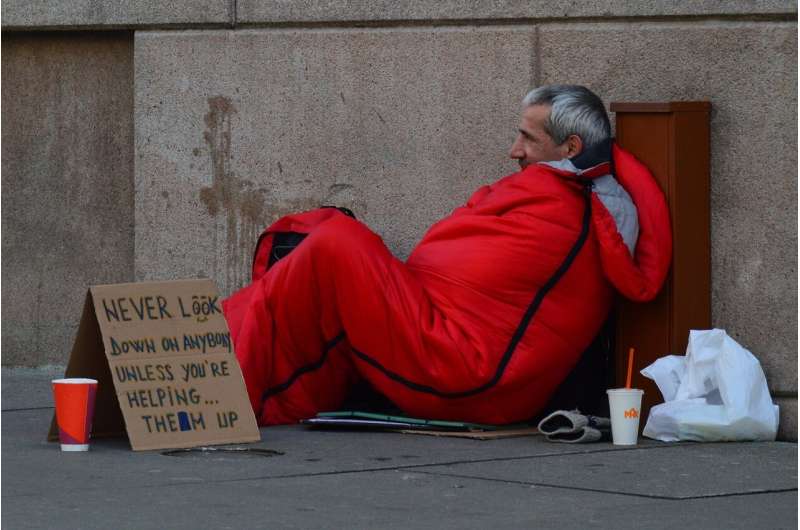Homelessness linked to emergency hospital admissions

Patients experiencing homelessness use hospital services, especially emergency admissions, at much higher rates than housed patients according to new research published this week.
The study’s authors believe the research indicates the need to improve access to primary care, including GPs, along with implementing other interventions for people experiencing homelessness.
The research was led by Charlie Moss from The University of Manchester and the National Institute for Health Research Greater Manchester Patient Safety Translational Research Centre (NIHR GM PSTRC).
The Centre is a partnership between The University of Manchester and Salford Royal NHS Foundation Trust.
The researchers calculated that for patients experiencing homelessness emergency admissions were 2.08 times higher, and annual admissions 1.79 times higher than housed patients.
The team also investigated differences in ambulatory care-sensitive admissions (ACSCs), admissions for certain conditions, such as diabetes, asthma, and pneumonia, that could potentially be avoided with timely and effective primary care.
They found that these admissions were 1.65 times higher in patients experiencing homelessness than housed patients.
Researchers from The University of Melbourne and The University of Southern Denmark were also involved in the work.
Compared to 1,000 housed patients with similar characteristics, they found, 1,000 patients experiencing homeless would collectively have 225 more emergency admissions per year, and 25 more ambulatory care-sensitive emergency admissions per year.
Ambulatory care-sensitive conditions that were more common in patients experiencing homelessness were cellulitis (skin infections), convulsions/epilepsy, and chronic angina.
The study, published in BMJ Open, compared data collected from 16,161 hospital patients registered as having no fixed abode with 74,780 housed patients.
Lead author Charlie Moss from The University of Manchester said: “This study is one of the first to quantify the higher rates at which patients experiencing homelessness use hospital services compared to housed patients in England.
“Our analysis shows that some of the admissions may be potentially preventable with improved access to primary care, though these comprise a small share of the total.
She added: “There is likely to be a complex array of factors which lead to the differences we observe.
“But other research suggests that people experiencing homelessness face barriers to healthcare because services are less accessible to them.
“There is a perception that stigma and discrimination from health professionals may lead to poor or delayed engagement with services.
“People experiencing homelessness often face many complex challenges making it harder for them to use services and for health care professionals to manage conditions that may need multiple appointments.”
Professor Matt Sutton from The University of Manchester said: “Addressing structural factors such as improved access to primary care could potentially reduce some of these admissions.
“However, the fact that only 11% of the additional emergency admissions experienced by the cohort including people experiencing homelessness were ambulatory care-sensitive suggests that other approaches are also needed if the goal is to reduce hospital admissions for people experiencing homelessness.
“Our results may suggest that interventions which strengthen support for people experiencing homelessness when they attend A&E could have the potential to reduce future hospital admissions.”
Source: Read Full Article
